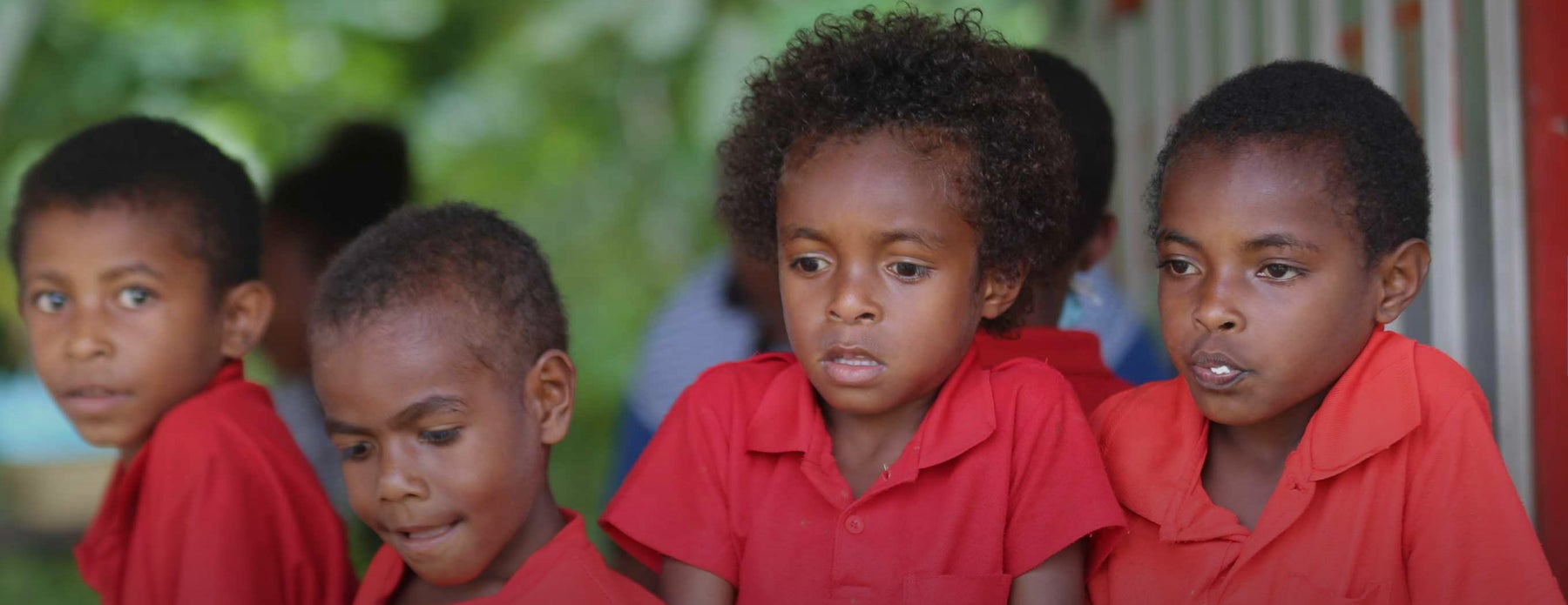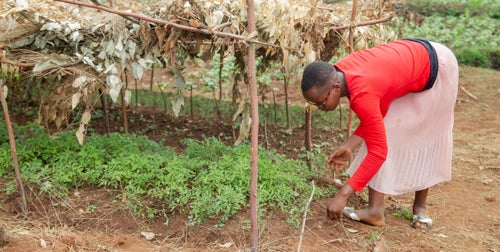When Jacklyn realised the nearest school was too far away for her young children to attend, she decided to build her own
The mother of two called on her community in rural Papua New Guinea (PNG) for help. She connected with four other mothers who also desperately wanted their young children to be educated.
Together, the women asked the men in the community to help them gather the materials needed to build a classroom.
“This classroom was built by us, the mothers,” says Jacklyn. “When we received the [water] tank last week, my husband helped us to set it up.”
"It took us three days to build this classroom, so I'm very emotional"
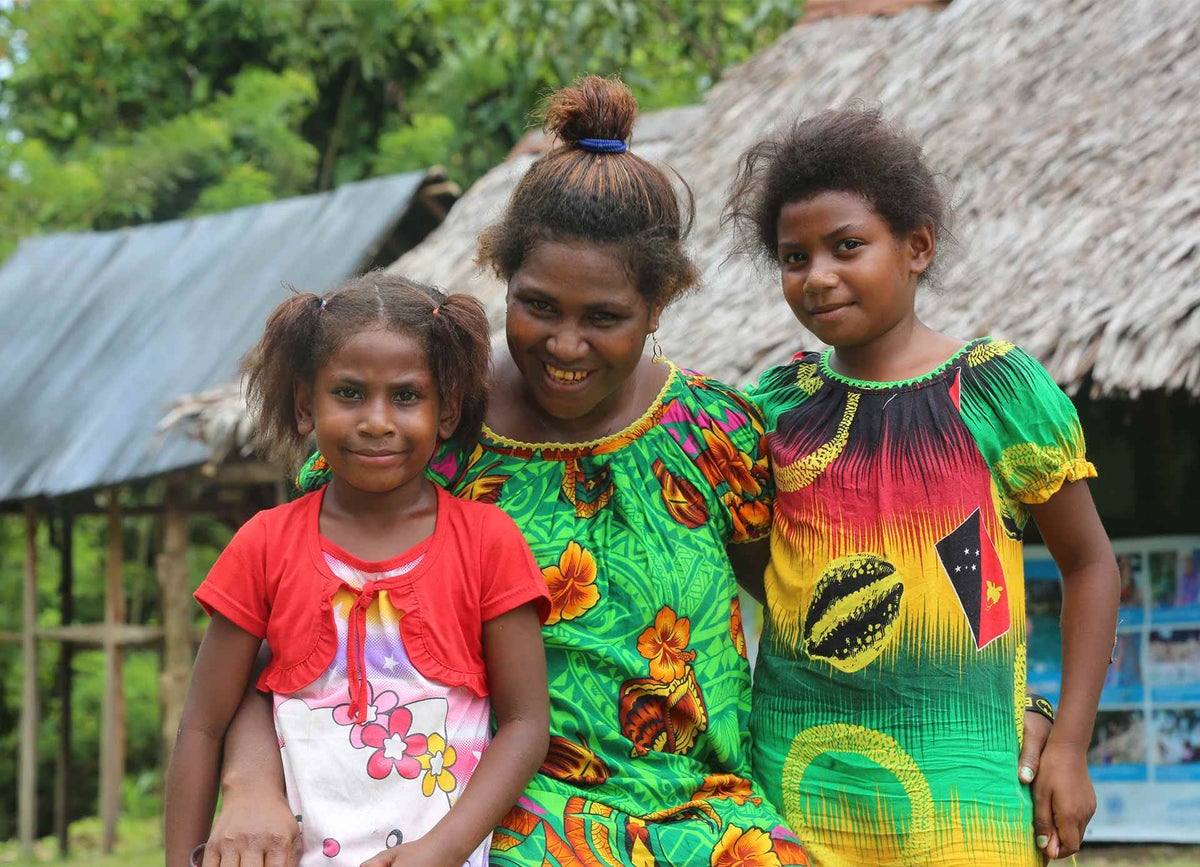
A child’s first years stays with them for life. In PNG, few children are able to enrol in, let alone complete, early learning and similar challenges exist for primary school. Schools are often too far from remote villages or lack the resources for quality learning.
UNICEF is working to change this by supporting inclusive early childhood development (ECD) centres like this one in Morobe Province.
The classroom not only provides children with a quality education, but also the opportunity to grow and be healthy.
UNICEF ensures the centres are accessible and inclusive for children with disabilities through teacher training. Children are kept safe with regular screenings for illness and malnutrition, with treatment and referrals provided as needed. Screenings are also conducted to identify disabilities and provide appropriate early intervention and support.
Today, 52 children are enrolled at this UNICEF-supported ECD centre, including Jacklyn’s six-year-old daughter Estherlyn.
“At home, I see competition between both of my daughters,” says Jacklyn. “I see that my younger daughter is quick to learn and knows a lot more things than her older sister.”
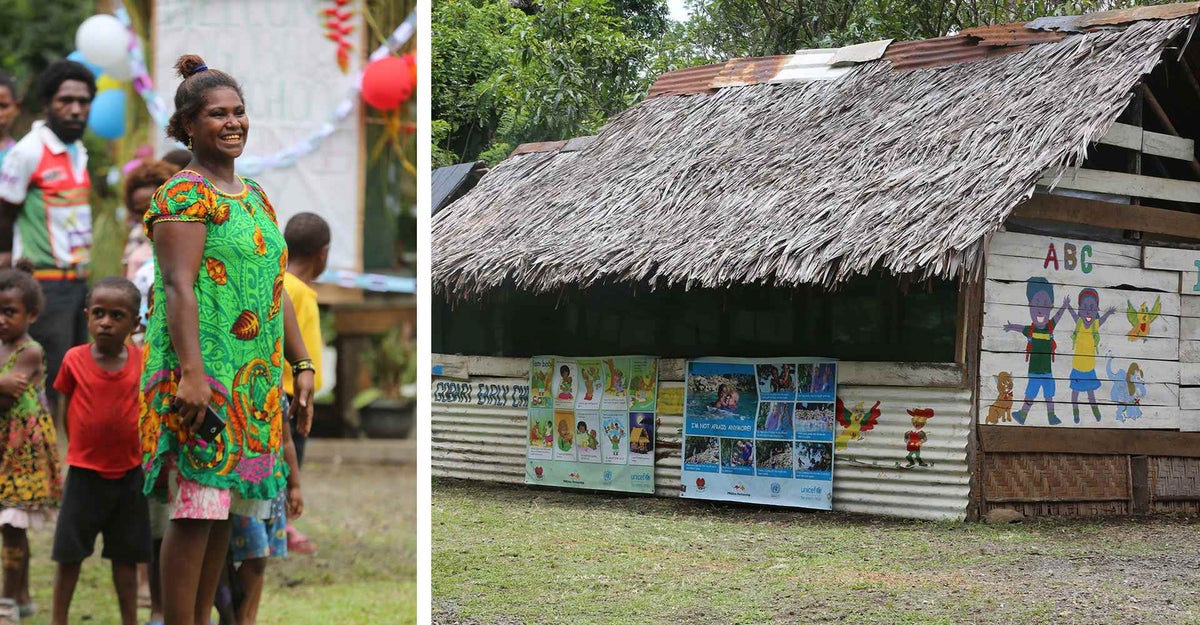
Inclusive early childhood education can be life-changing for every child, but especially for children who would normally be excluded due to their disability. They are still one of the most marginalised and excluded groups in PNG.
Nearby another ECD learning centre is bridging the gap for children like Yop. The nine-year-old used to need to climb hills and cross creeks to get to school, made even more difficult by his disability. This meant he would often stay home, missing out on learning with his peers.
Gangena, determined to see her grandson educated, moved closer to this newly established ECD centre, supported by UNICEF, so Yop could easily attend school.
“All my children don’t know how to read or write so I want my grandson to be educated,” says Gangena. “My heart aches for my children so I don’t want my grandson to be the same as them.
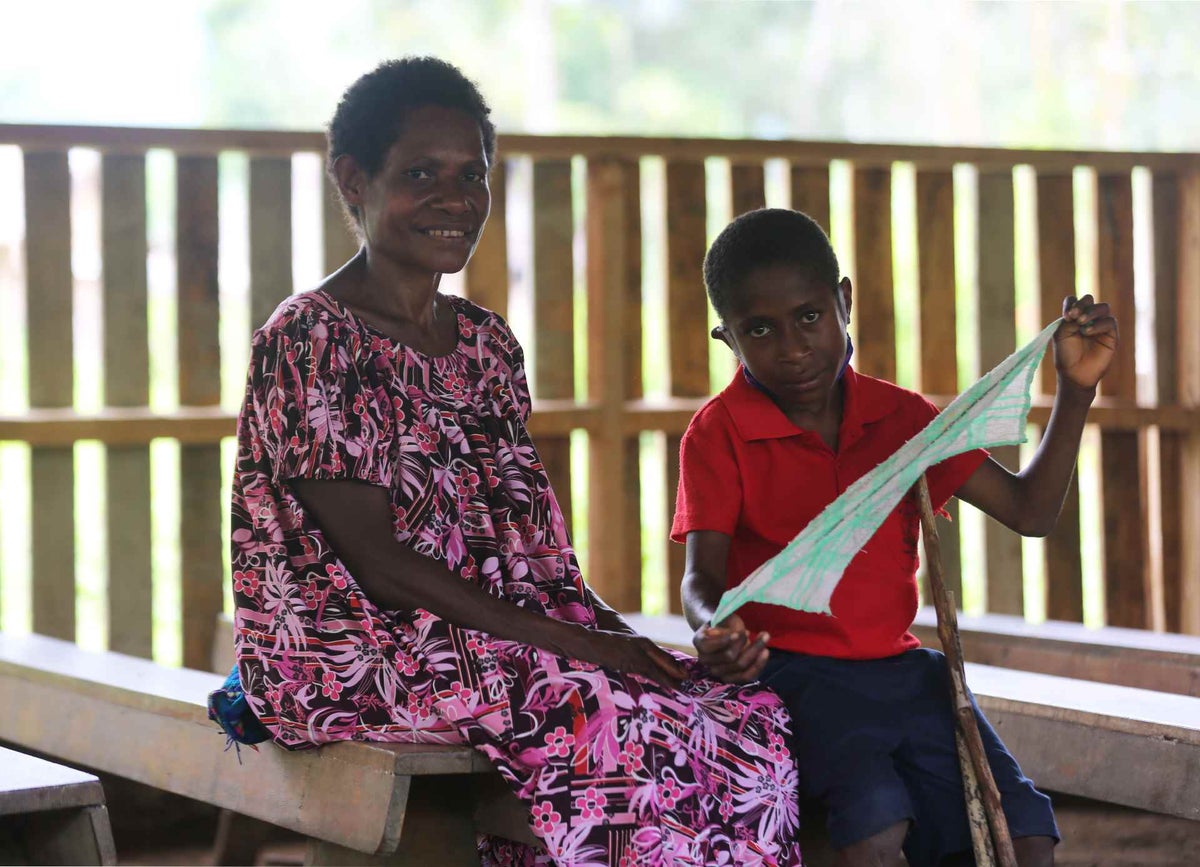
“I’m very happy because the school was happy to enrol him and they accepted him.”
“My grandson learns a lot of things here. He is learning to speak English and he teaches me when he comes home.”
UNICEF has established 73 new ECD centres in hard to reach communities, benefiting more than 7,000 children, including 245 children with disabilties like Yop.
This program is supported by the Australian Government through the PNGAusPartnership.
DONATE NOWRelated articles
Stay up-to-date on UNICEF's work in Australia and around the world



